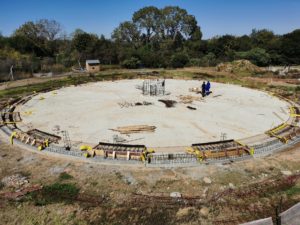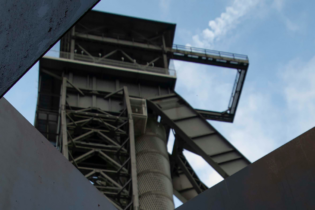Finding solutions to momentous social, economic, and environmental challenges in South Africa today demands – more than ever – the expertise of consulting engineers, but can the sector remain up to the task?
The question is a real one, according to Vis Reddy, managing director of SRK Consulting (SA), as consulting engineering stands at a vital inflection point leading either to progress or deterioration. “Our sector has been pivotal to the country’s development on various levels, leveraging the specialised skills of many scientific and engineering professions,” said Reddy. “The position now, though, is that the demands on us are growing at the same time that the sector’s capacity could erode.” Years of infrastructural decline in the country, for instance, have occurred alongside slow economic growth, social instability and policy uncertainty that has deterred foreign direct investment. This depressing situation has been exacerbated by the global Covid-19 pandemic. While dealing with these challenges, South Africa is facing the impacts of climate change – and is also under pressure to adapt to a lower-carbon future. “The current demands of our economy and society are huge if we are to achieve the equitable and prosperous future that we have all worked towards in recent decades,” he said. “In our modern world, the solutions include highly technical interventions which call for specialised and innovative skill-sets. This is really where consulting engineers play their most significant role in facilitating the national development process.” He highlighted the increasingly intricate work being done in fields such as infrastructural development, water management, energy generation, environmental protection, and social engagement. “The growing complexity of the world’s regulatory and ethical framework is demanding a more wide-ranging consideration of project requirements and risks in the industry,” he said. “These dynamics have called for a new breed of engineers and scientists who recognise traditionally ‘non-engineering factors like environmental and social impacts, as well as health and safety. South Africa is no exception, and we have a growing awareness among clients that all projects require a focus of sustainability.” Beyond their technical input, consulting engineers also help develop policy on which sustainable development can be pursued. SRK’s recent work within the Southern African Development Community (SADC), for instance, has included developing sector mainstreaming guidelines on disaster management. This important resource benefits fields as wide-ranging as agriculture, food security, gender, education, infrastructure, water and sanitation. “Our current concern is that the consulting engineering sector is struggling to retain the experience we have developed, and to continue building the skills we need,” said Reddy. “There are many practitioners in the market, but there is often insufficient experience.”He notes that this problem expresses itself in the variable quality of work that is delivered, especially when companies and organisations issuing tenders are not equipped to judge which proposal presents the best long-term value for money for shareholders or taxpayers. Consulting engineers’ bid proposals are often adjudicated through price-focused procurement systems which pay little attention to the bidder’s experience or suitability. Further, in terms of contractor appointments, consulting engineers are today rarely involved in vetting the award of projects. This is counter-productive, as responsibility for additional support tends to fall on the consulting engineer when unsuitable contractors are awarded projects which they then struggle to complete.
“The under-valuing of consulting engineering input can be seen by the drop in the proportional value of our services within engineering projects,” he said. “An accepted norm is for consulting engineering services to make up around 7% of project value, but these days this as low as 2% in some projects.” He emphasised that quality design and execution ensure a longer and more cost-effective life-cycle for engineering projects, giving the best return on a society’s investment in these works. This requires the focus of experienced scientists and engineers from multiple disciplines, integrating their insights into a sustainable solution. “We are starting to feel the effects of losing that experience, due partly to the gap in the supply of engineers in the 35 to 50-year age range,” he said. “We no longer have enough people in this group, so we can expect to face a real crisis in less than a decade or so – when the current experts in our industry retire and there are too few in line to take their place.” One of the factors behind this shortage is that not many graduate engineers are being developed within mining companies, municipalities and state-owned enterprises – which in the past was an important source of high-level professional experience. Also, many graduates who may previously have been attracted to engineering were now entering fields like information technology. “On the positive side, many of our local universities still produce high-quality graduates,” he said. “Consulting firms like SRK also proactively nurture and mentor young engineers and scientists – both within our local offices and our global network.” He concluded that government needs to play an important role in supporting the capability of the consulting engineering sector, by prioritising the employment of local engineers and scientists in government’s infrastructure and service delivery programmes. “The members of Consulting Engineers South Africa (CESA) are qualified and professionally registered to accelerate infrastructure development,” said Reddy. “They also have the high ethical standards and integrity necessary to ensure that clients and the country at large receive the best value for money in their infrastructural and business investments.”





